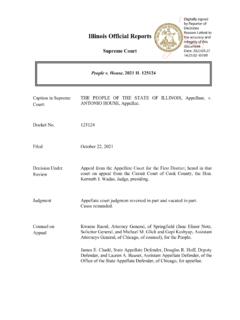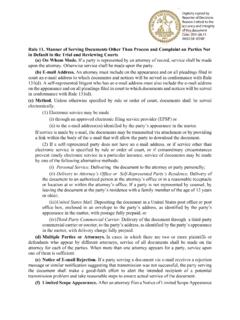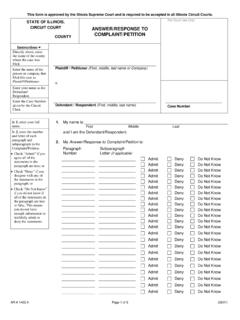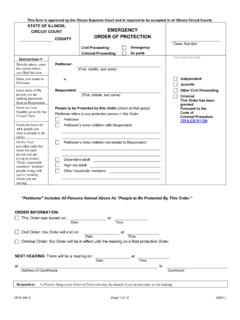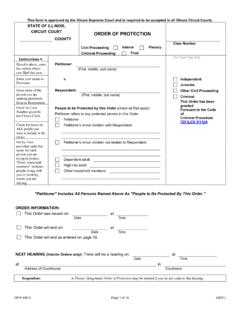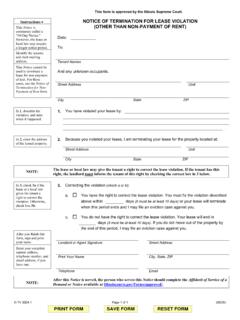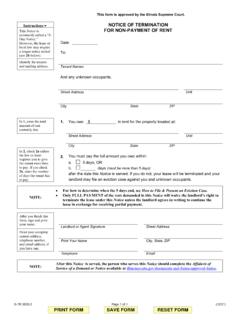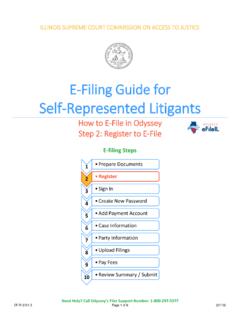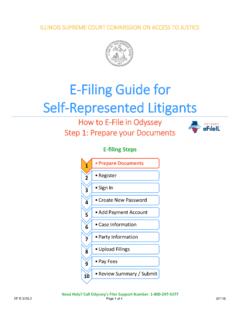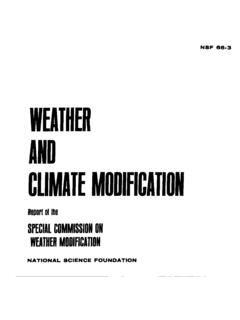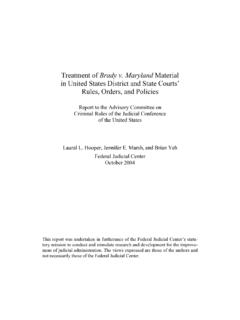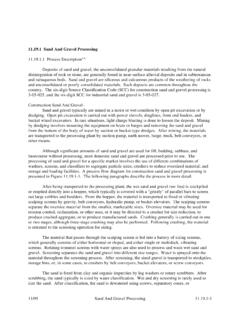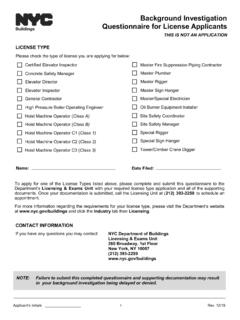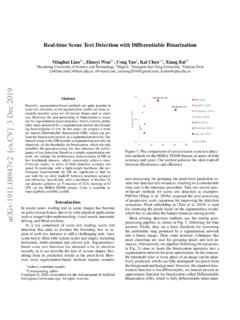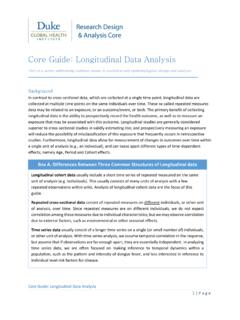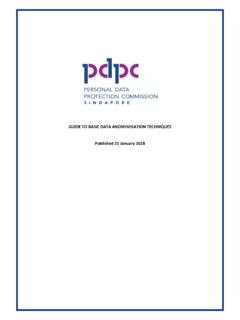Transcription of IN THE SUPREME COURT OF THE STATE OF ILLINOIS
1 Digitally signed by Reporter of Decisions Reason: I attest ILLINOIS Official Reports to the accuracy and integrity of this document SUPREME COURT Date: 10:54:10 -06'00'. People v. Salamon, 2022 IL 125722. Caption in SUPREME THE PEOPLE OF THE STATE OF ILLINOIS , Appellee, v. COURT : ANDREW SALAMON, Appellant. Docket No. 125722. Filed April 21, 2022. Decision Under Appeal from the Appellate COURT for the First District; heard in that Review COURT on appeal from the Circuit COURT of Cook County, the Hon. Erica L. Reddick, Judge, presiding. Judgment Affirmed. Counsel on James E. Chadd, STATE Appellate Defender, Douglas R. Hoff, Deputy Appeal Defender, and Linda Olthoff, Assistant Appellate Defender, of the Office of the STATE Appellate Defender, of Chicago, for appellant.
2 Kwame Raoul, Attorney General, of Springfield (Jane Elinor Notz, Solicitor General, and Michael M. Glick and Jason F. Krigel, Assistant Attorneys General, of Chicago, of counsel), for the People. Sean R. Berkowitz, Abigail M. Parr, and Andrea E. Olson, of Latham & Watkins LLP, of Chicago, for amici curiae Center for Wrongful Convictions et al. Justices JUSTICE NEVILLE delivered the judgment of the COURT , with opinion. Chief Justice Anne M. Burke and Justices Theis, Overstreet, and Carter concurred in the judgment and opinion. Justice Michael J. Burke specially concurred, with opinion, joined by Justice Garman. OPINION. 1 Following a jury trial in the circuit COURT of Cook County, defendant Andrew Salamon was convicted of first degree murder, armed robbery, and burglary and sentenced to an aggregate prison term of 33 years.
3 Defendant appealed, arguing that the circuit COURT erred in denying his pretrial motion to suppress his inculpatory statement because it was obtained in violation of his constitutional and statutory rights. The appellate COURT rejected defendant's arguments and affirmed his conviction. 2019 IL App (1st) 160986-U. This COURT granted defendant's petition for leave to appeal. Ill. S. Ct. R. 315 (eff. Oct. 1, 2019). For the following reasons, we affirm the judgment of the appellate COURT . 2 I. background . 3 In the early morning hours of October 4, 2009, police officers responded to a burglar alarm at O'Lanagan's bar on the north side of Chicago. Robert Gonzalez, the owner of the bar, was found lying between two parked cars in the parking lot behind the bar.
4 Gonzalez had suffered multiple injuries and was transported to the hospital, where he died 15 hours later. During the police investigation of the crime, defendant and another person named Raymond Jackson became suspects. Defendant was ultimately arrested approximately two years later and charged with first degree murder based on a theory of accountability, armed robbery, and burglary. 1. 4 Prior to trial, defendant filed a motion to suppress a statement he made to the officers investigating Gonzalez's death and to an assistant STATE 's attorney. Defendant's motion asserted that any and all statements made by him were elicited in violation of his constitutional rights under the fourth, fifth, sixth, and fourteenth amendments to the United States Constitution ( Const.)
5 , amends. IV, V, VI, XIV), the ILLINOIS Constitution (Ill. Const. 1970), and his statutory right to communicate with an attorney or family member under section 103-3 of the Code of Criminal Procedure of 1963 (725 ILCS 5/103-3 (West 2012)). 5 A. suppression Hearing 6 At the hearing on the motion to suppress, defendant testified that he was contacted by police officers on November 15, 2010, approximately one year after Gonzalez died. On that date, he received a telephone call from a detective who indicated he had some routine questions about The record does not reflect whether Jackson was ever charged or tried for any crimes related to 1. Gonzalez's death. -2- an unspecified matter. Defendant voluntarily went to the police station with a friend, Apolonio Retama.
6 7 During that conversation with the detectives, defendant was not handcuffed or given Miranda admonishments. See Miranda v. Arizona, 384 436 (1966). Detectives Timothy Thompson and John Gillespie began asking questions about Jackson regarding what they described as a serious matter. When defendant learned that they were investigating a murder, he informed them that he wanted to speak with an attorney before talking to them any further. The detectives told him he did not need an attorney, but when he insisted, they told him that he was free to go. Defendant estimated that this encounter with the detectives lasted approximately 15 minutes. 8 Nearly a year later, defendant was pulled over by two police cars as he was driving home from work in the early evening of November 9, 2011.
7 When he stopped his vehicle, several officers surrounded him with their guns drawn and ordered him out of his car. Defendant complied and was then handcuffed and placed in the back of one of the police cars. The two detectives who had questioned him a year earlier were also in the police car. The detectives did not advise him that he was under arrest, and he asked why he had been stopped. According to defendant, the detectives told him the games are over with' and that it was his last chance to cooperate' and they could do this the easy way or the hard way.' The prosecutor objected on the ground that [t]here is nothing [in defendant's motion] about coercion or anything else. Defense counsel responded that the previous testimony was not offered as coercion and that he was asking defendant what happened when he got in the [police] car.
8 The trial COURT overruled the objection. 9 Defendant further testified that, as soon as he got in the police car, he told the detectives that he wanted to speak to a lawyer. The detective drove him to the police station, put him in an interrogation room, and then advised him of his Miranda rights. Defendant again repeated that he wanted to speak to a lawyer, but he was not permitted to use a telephone to contact an attorney or any members of his family who could arrange for counsel. 10 According to defendant, he remained handcuffed to the wall in the interrogation room overnight except on the three or four occasions when he was escorted to use the restroom. During that time, he was provided with food, water, and contact lens solution. Defendant acknowledged that, when he told the detectives he did not wish to speak to them without an attorney present, they stopped questioning him and left the interrogation room.
9 He stated, however, that the officers who escorted him to and from the restroom urged him to cooperate with the investigation. 11 Defendant further testified that he repeatedly requested a telephone call so that he could contact an attorney, but none of the officers permitted him the use of a telephone. On November 10, 2011, after spending approximately 24 hours alone and handcuffed to a wall in the interrogation room, while his repeated requests for a phone call were ignored, he started crying and pounding on the walls and door. Defendant again requested a telephone call to contact an attorney and his mother so she could call a lawyer. When a police officer opened the door, defendant said that he wanted to speak to Detectives Thompson and Gillespie. Shortly thereafter, Detectives Thompson and Gillespie reentered the room, but they informed him that he would have to wait for a phone call.
10 -3- 12 Eventually, defendant agreed to speak with the detectives. He acknowledged that he reinitiated contact with the detectives and, after he was again admonished of his Miranda rights, he provided a statement. Defendant subsequently provided another statement to an assistant STATE 's attorney, who also advised him of his Miranda rights. 13 The STATE called Detective Timothy Thompson, who substantially confirmed defendant's description of the interview at the police station in November 2010. Thompson testified that he was present when defendant was arrested on November 9, 2011, in connection with Gonzalez's murder. Following the arrest, defendant was transported to the Area North police station and, shortly after 6 , defendant was placed in an interview room.
